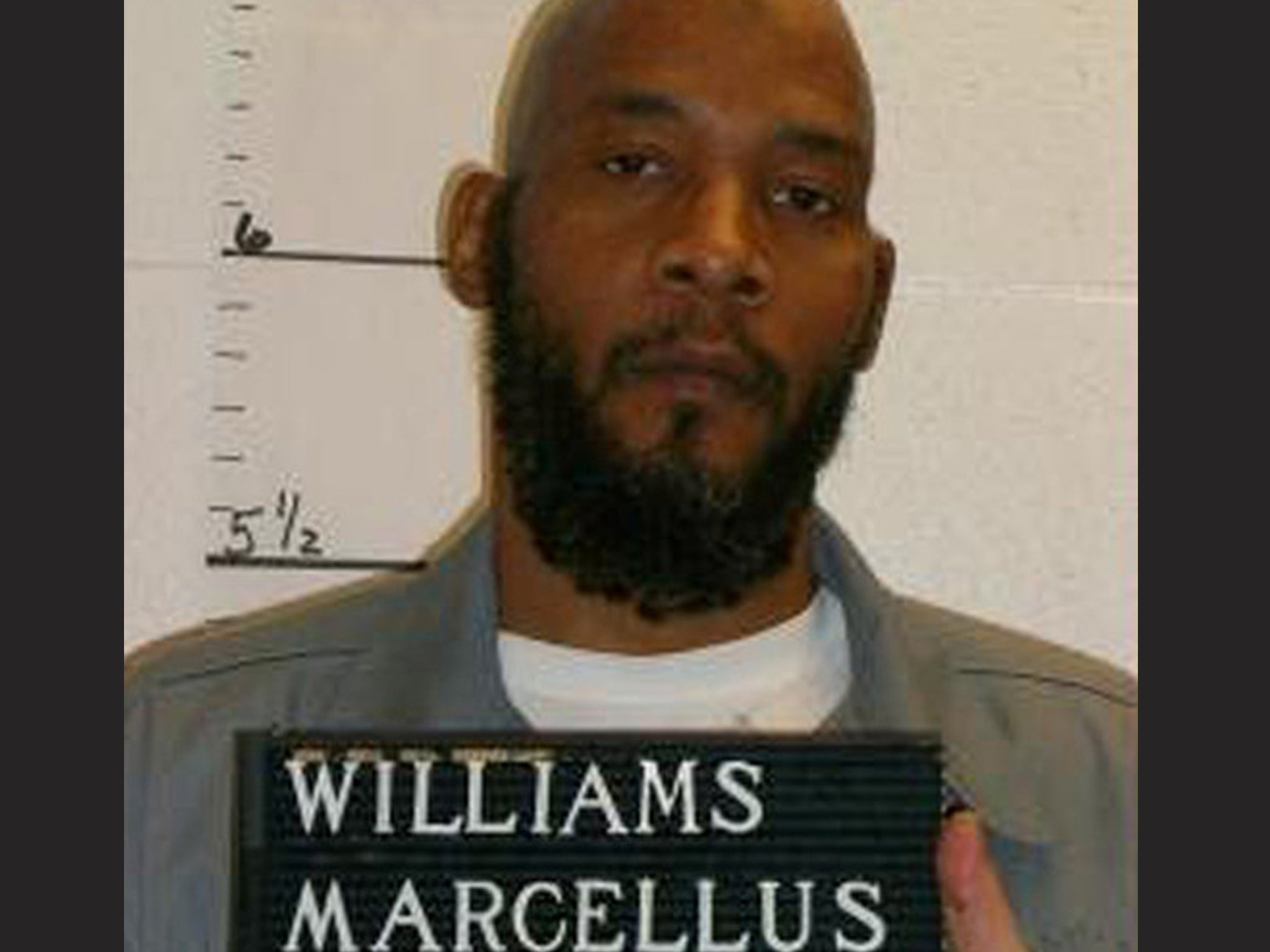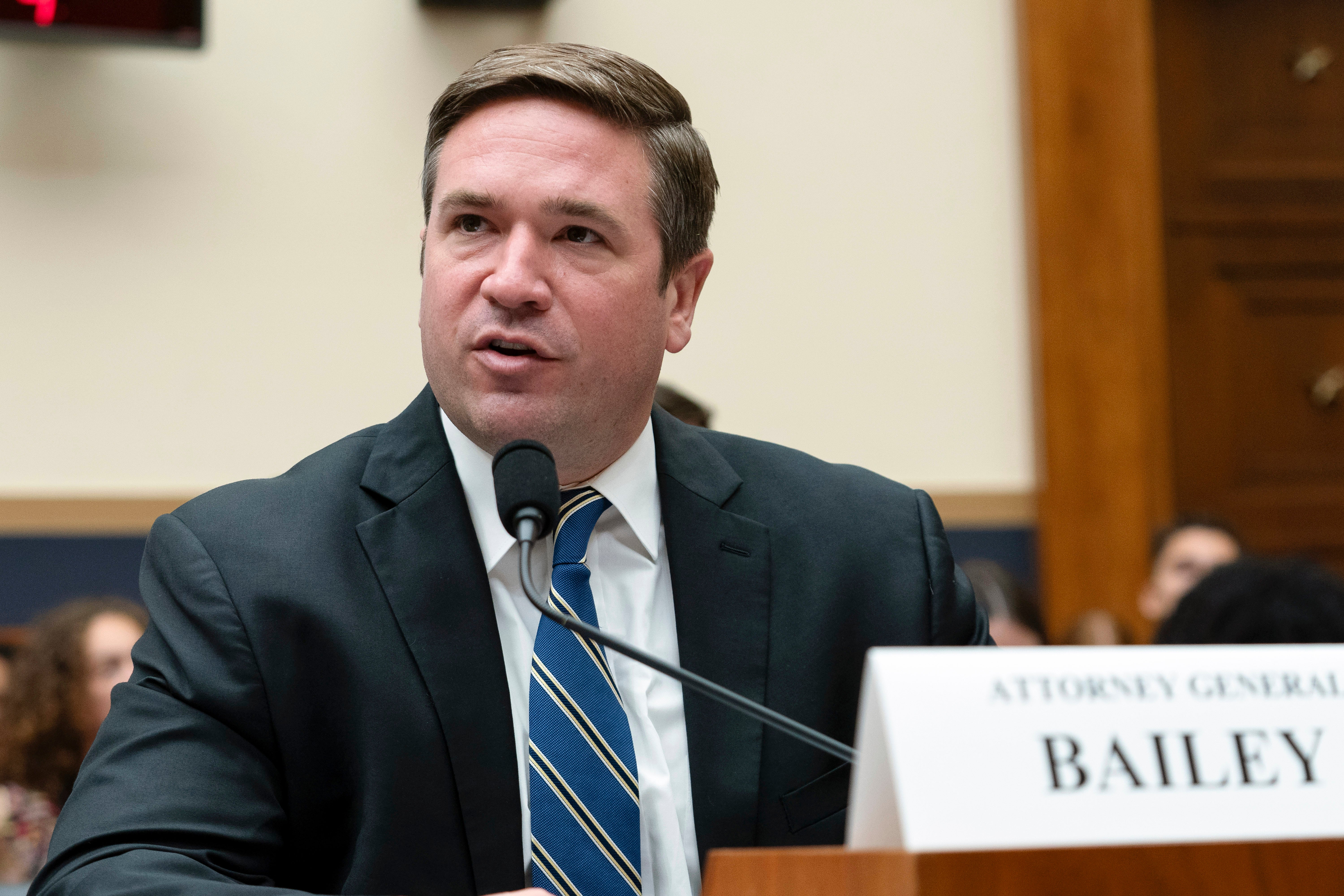Missouri death row inmate with DNA evidence on his side gets last ditch hearing to save his life
Marcellus Williams, 55, was sentenced to death in 2001 for fatally stabbing well-known St. Louis Post-Dispatch reporter Felicia Gayle
A death row inmate in Missouri is currently fighting for his life as experts say new DNA evidence proves his innocence of a 1998 murder – just weeks before he faces execution.
Marcellus Williams, 55, was sentenced to death in 2001 for fatally stabbing well-known St. Louis Post-Dispatch reporter Felicia Gayle.
On August 11 1998, Gayle was stabbed 43 times with a kitchen knife in a brutal attack in her home in the St. Louis suburb of University City, according to court records.
One day after her murder, police seized Williams’s car and discovered a St. Louis Post-Dispatch-branded ruler inside.
Police later found a laptop belonging to Gayle’s husband at the home of a man named Glenn Roberts, who claimed that Williams had given it to him.
At the time, prosecutors alleged that Williams killed the 42-year-old during a burglary at Gayle’s home and left the house with a bloodied shirt, her purse and the laptop.
At his trial, he was convicted of first-degree murder and sentenced to death.

Now, he is scheduled to be executed on September 24.
But, 20 years on from the murder, Williams continues to claim his innocence and is fighting to have his conviction overturned.
On Wednesday, Williams’s lawyers and St. Louis Prosecuting Attorney Wesley Bell are presenting DNA evidence for the first time which they say shows that he could not have been the killer.
In a 63-page motion filed by Bell, seen by The New York Times, they argue that Williams was wrongly convicted because the case “rested entirely” on testimony from two informants – Laura Asaro, Williams’s former girlfriend, and Henry Cole, a prison inmate who was previously behind bars with Williams – and that there is no evidence linking Williams to the crime scene.
Specifically, bloody footprints, hair and fingerprints found at the scene do not belong to Williams, the motion says.
According to Bell, the murder weapon was tested in 2016 and three DNA experts have said that it cannot be traced back to Williams. Other forensic evidence from the scene also does not link to Williams, the motion says.

The hearing on Wednesday marks the first time the DNA evidence in the case will be reviewed.
While Bell and Williams’s attorneys are fighting to prove his innocence, Missouri Attorney General Andrew Bailey has sought to quash the legal battle.
Last month, Bailey asked both St. Louis County Circuit Court and the State Supreme Court to block the hearing arguing that the court had already heard and denied Williams’s claims before and that the State Supreme Court has “exclusive authority to review death sentences.”
The Missouri Supreme Court denied his request, paving the way for the hearing to take place.
Williams has previously come close to execution twice, once in 2015 and once in 2017 – before they were stayed at the last minute to conduct DNA testing.

